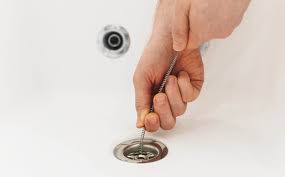Clogged kitchen drain? Fixed in no time!
✔️ Plumber at an all-in price!
✔️ Smart ways to unclog it yourself
✔️ Prevent costly repairs and keep your drain clear
Available 7 days a week
- 085 2505 218
All-in prices
You’ll always receive a clear fixed price, so you won’t face any surprises.
Reliable plumbers
We work only with certified and experienced professionals. Whether it’s a clogged drain, a leak, or boiler maintenance, our experts are ready to help you quickly and efficiently.
7 days a week
Clogged kitchen drain? We’re here for you 7 days a week with fast and reliable service—no hassle!
Unclog your kitchen drain fast: 5 effective methods!
Warning!
We strongly advise against using liquid drain cleaners. These products are often so aggressive that they can eat away at the adhesive in your PVC pipes, causing them to leak. This can lead to serious water damage, especially in hard-to-reach areas like inside walls or behind panels—places where repairs can be difficult and expensive. Save yourself the trouble and use simple home remedies instead, as described below!

Method 1: Cleaning the P-trap |
The P-trap is often the spot where dirt, grease, and food particles accumulate.
Step 1
Loosen the slip nuts.
Step 2
Remove the P-trap and rinse it thoroughly with warm water.
Step 3
Use a brush to loosen any stuck debris.
Step 4
Reattach the P-trap and check for any leaks.

Method 2: Baking Soda and Vinegar |
This natural combination breaks down grease and grime.
Step 1
Pour a cup of baking soda into the drain.
Step 2
Add a cup of vinegar and cover the drain.
Step 3
Wait 30 minutes, then flush with hot water.
Note:
Do not use boiling water if you have PVC pipes, as it can cause damage. In that case, use hot (but not boiling) water instead.

Method 3: Using a Plunger |
The plunger is ideal for minor clogs.
Step 1
Fill the sink with a small amount of water.
Step 2
Place the plunger firmly over the drain.
Step 3
Plunge up and down with firm pressure.
Step 4
Check if the water is draining properly again.

Method 4: Using a Drain Snake |
For stubborn clogs deeper in the pipe.
Step 1
Remove the P-trap (if possible) and carefully insert the drain snake into the pipe.
Step 2
Slowly push the snake further into the pipe while turning the handle. This helps break up the clog.
Step 3
Slowly pull the snake back out to remove any grease, debris, or food particles caught on it.
Step 4
Flush the drain with hot water to rinse away loosened debris and clean the pipe.

Method 5: Hot Water and Dish Soap |
This method works well for grease buildup.
Step 1
Mix hot water with a few drops of dish soap.
Step 2
Slowly pour the mixture into the drain.
Step 3
Repeat if necessary.
Tip:
Let the hot water and dish soap sit in the drain for a few minutes before rinsing. This gives the mixture time to effectively loosen grease and grime!

How to Prevent Clogs: Maintenance Tips
Tip 1
Don’t pour grease or oil down the drain
Grease and oil solidify in the pipes and cause clogs. Collect grease in a separate container and dispose of it in the trash.
Tip 2
Use a sink strainer
Place a strainer in the sink to catch food scraps and debris.
Tip 3
Regular Cleaning
Rinse the drain regularly with hot water and a splash of vinegar to prevent grease buildup.
When Should You Call a Professional Drain Cleaning Service?
Stubborn Clogs:
When natural methods don’t work.
Recurring Issues:
There may be structural damage to the pipe.
Deep Clogs:
A professional has access to specialized tools like high-pressure cleaners or camera inspections.
FAQ
Typical signs include:
Water draining slowly
Gurgling sounds from the drain
Unpleasant odors
We don’t recommend it.
Chemical drain cleaners can damage your pipes and are harmful to the environment.
At least once a month.
Flushing with hot water and a bit of vinegar helps prevent clogs.
Fast service and available 7 days a week!
The solution is within reach—don’t risk costly damage.
- 085 2505 218